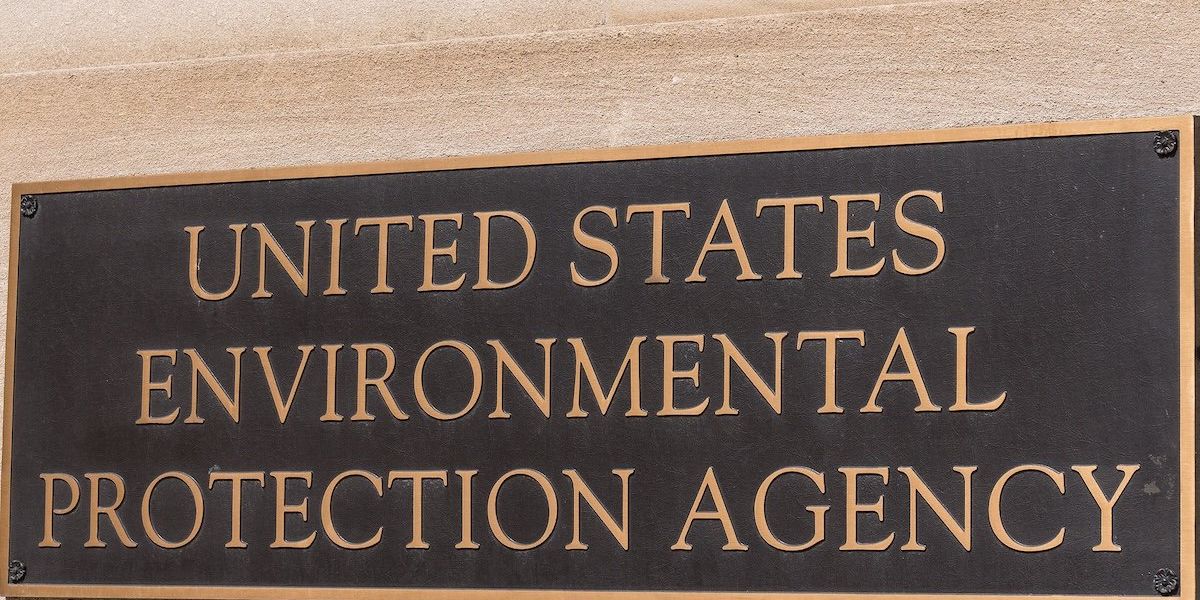fossil fuels
China and Europe vow joint climate action as US exits Paris accord
China and the European Union pledged to deepen cooperation on climate change Thursday, promising new emission-reduction targets while the United States moves to abandon the Paris Agreement and roll back renewable energy programs.
In short:
- The joint pledge frames the Paris Agreement as the “cornerstone” of climate cooperation, contrasting with U.S. withdrawal and policy reversals under President Trump.
- China, already the largest producer of solar panels and wind turbines, aims to expand its dominance in clean-energy technologies while Europe pushes aggressive climate targets.
- Both parties must still reconcile tensions over coal use, electric vehicle trade disputes, and Europe’s carbon border tax as they prepare for climate talks in Brazil this fall.
Key quote:
“In the absence of robust U.S. climate action, the EU and China still recognize the imperative of working together to confront a shared existential threat.”
— Li Shuo, director of China Climate Hub at the Asia Society Policy Institute
Why this matters:
The alignment between China and Europe on climate policy signals a major shift in global leadership as the U.S. steps back from international climate commitments. Together, the two economies account for a large share of global greenhouse gas emissions and control much of the market for renewable energy technologies like solar panels, wind turbines, and electric vehicles. Their decisions will heavily influence whether the world can limit warming to safer levels. Yet their cooperation is complicated by trade disputes and China’s ongoing reliance on coal, raising questions about whether pledges will translate into real emission cuts or simply shift pollution across borders.
Related: China’s climate leadership may grow as U.S. pulls back
Brazil’s Amazon city prepares for climate summit as world leaders face realities of deforestation and poverty
When negotiators meet in Belem for November’s United Nations climate summit, they will confront the Amazon’s deforestation and poverty rather than the luxury settings of past talks.
In short:
- Brazil chose Belem, a high-poverty Amazon city, for COP30 to spotlight deforestation and inequality rather than hide them behind tourist destinations.
- The summit coincides with countries’ overdue updates to their Paris Agreement emissions plans, which U.N. officials warn still fall short of the 1.5-degree Celsius target.
- Brazil faces housing shortages and soaring hotel costs for the expected 90,000 attendees, prompting plans to dock cruise ships and prioritize bookings for poorer nations.
Key quote:
“We cannot hide the fact that we are in the world with lots of inequalities and where sustainability and fighting climate change is something that has to get closer to people.”
— André Corrêa do Lago, COP30 president-designate
Why this matters:
Holding the summit in Belem forces climate diplomacy into direct contact with the Amazon rainforest, whose health affects global weather patterns and carbon storage. The region absorbs vast amounts of carbon dioxide but has seen deforestation push some areas into emitting rather than storing carbon. The meeting also underscores a broader tension in climate talks: Richer nations drive most emissions, yet poorer regions like the Amazon bear the brunt of climate harm and have fewer resources to adapt.
Related: Amazonian city prepares for climate summit amid pollution and inequality
Interior Department expands scope of potential federal layoffs to over 1,400 job groups
The U.S. Department of the Interior has added hundreds of new job categories across multiple agencies to its list of positions eligible for layoffs, setting a new 90-day clock for possible staff cuts.
In short:
- The new list covers more than 1,400 “competitive areas,” including expanded targets in the Bureau of Reclamation, Fish and Wildlife Service, and Office of the Secretary.
- Employees face possible reductions in force based on tenure and performance; federal rules require at least 60 days’ notice before dismissals can occur.
- The expansion follows a U.S. Supreme Court decision lifting an injunction that had blocked earlier reorganization efforts.
Key quote:
“The Bureau of Reclamation remains focused on providing essential water and hydropower to the American public across the 17 Western states.”
— Peter Soeth, Bureau of Reclamation spokesperson
Why this matters:
Layoffs at the Interior Department could significantly impact federal management of water, energy, and wildlife across much of the West. Agencies like the Bureau of Reclamation and Fish and Wildlife Service oversee reservoirs, river flows, and endangered species protection — responsibilities tied to both public safety and ecological health. Cutting staff could slow permitting, habitat restoration, and drought response at a time when climate pressures are rising. Reduced capacity may also weaken oversight of industries such as oil, gas, and mining that operate on public lands. These changes echo broader shifts in federal workforce priorities under the Trump administration, which has emphasized agency downsizing and consolidation over environmental regulation.
Learn more: Former Interior official warns of public land rollbacks and launches advocacy group
Mikisew Cree chief links cancer concerns to oilsands pollution in meeting with Carney
The chief of a Cree First Nation downstream from Alberta’s oilsands told Prime Minister Mark Carney he will not support new fast-tracked fossil fuel projects until Ottawa addresses toxic water and elevated cancer rates in his community.
In short:
- Chief Billy-Joe Tuccaro of Mikisew Cree First Nation said residents face months-long delays for cancer treatment and suspects local pollution worsens illnesses.
- The community sits north of oilsands tailings ponds shown to leak into groundwater; a 2014 report linked higher cancer rates to employment in the oilsands and consumption of local fish and game.
- Tuccaro criticized the federal Building Canada Act, which fast-tracks “national interest” projects without guaranteeing Indigenous consent, and invited Carney to visit Fort Chipewyan.
Key quote:
“You want my consent? You improve my people’s health.”
— Chief Billy-Joe Tuccaro, Mikisew Cree First Nation
Why this matters:
Communities downstream from the Alberta oilsands live amid vast tailings ponds that store toxic byproducts of oil extraction. Peer-reviewed studies have documented leaks into groundwater, raising fears about cancer clusters and contamination of traditional food sources like fish and game. Health access is also limited: Residents often travel long distances for care, meaning diagnoses come late and outcomes worsen. As Canada pushes carbon-capture projects to frame oilsands oil as “decarbonized,” local First Nations warn that air and water pollution remain even if emissions drop. Their stance highlights a broader debate over what counts as clean energy — and whether fast-tracked projects can proceed without fully addressing Indigenous health and environmental risks.
Related: Canada funds long-awaited health study for Indigenous communities downstream of oilsands
Bike lane removal plan sparks conflict between Toronto drivers and cyclists
Cyclists and drivers in Toronto are locked in a legal and political fight over a provincial law that would tear out 14 miles of protected bike lanes from three of the city’s busiest streets.
In short:
- Ontario Premier Doug Ford signed a law requiring the removal of 14 miles of bike lanes, citing traffic congestion; a court has temporarily blocked the move while legal challenges proceed.
- Toronto’s mayor and cycling advocates argue that bike lanes improve safety and climate goals, while opponents, including taxi drivers and some residents, say the lanes worsen congestion and are underused in winter.
- The province passed liability protections for itself against lawsuits from cyclists injured on roads where bike lanes are removed, drawing criticism from cycling lawyers and activists.
Key quote:
“This idea that [bike lanes] are somehow the cause of Toronto’s traffic woes isn’t based on any fact,— Michael Longfield, executive director of Cycle Toronto
Why this matters:
Urban bike lanes often sit at the crossroads of public health, safety, and environmental policy. Advocates point to lower emissions and fewer traffic deaths when protected cycling infrastructure expands. Yet opponents highlight snarled traffic, economic losses from delays and accessibility issues for drivers who rely on cars for work or disability transport. The Toronto debate reflects tensions playing out in cities worldwide as they try to cut carbon emissions while balancing car-centric road systems with pedestrian and cycling needs. How governments weigh safety data against congestion complaints could shape the pace of urban climate planning and determine whether cycling becomes a mainstream commuting choice or remains a niche option.
Learn more: How a global network of grassroots leaders is getting cities to ride more bikes
Architect of EPA's 'endangerment finding' warns about consequences of Trump administration's repeal
The Trump administration is preparing to rescind a 2009 federal determination that greenhouse gases endanger public health, a move that would strip the government’s authority to limit climate-warming pollution.
In short:
- The Environmental Protection Agency’s proposal would overturn the “endangerment finding,” which has served as the legal basis for regulating greenhouse gases under the Clean Air Act.
- Former EPA officials and scientists warn that reversing the finding ignores mounting evidence of harm, including more frequent heatwaves, wildfires and billion-dollar disasters since 2009.
- Environmental groups are expected to challenge the rule in court, citing a 2007 Supreme Court decision that established the EPA’s duty to regulate greenhouse gases.
Key quote:
“The science is clearcut, the impacts are clearcut and the law is clearcut. The challenge should be how we reduce emissions rather than debate whether there’s a problem.”
— Jason Burnett, former associate deputy administrator of the EPA during the George W. Bush administration
Why this matters:
Greenhouse gases like carbon dioxide and methane trap heat in the atmosphere, driving rising temperatures, stronger storms, and widespread drought. In the United States, these shifts have fueled catastrophic floods, wildfires and crop failures that damage communities and strain public health systems. The endangerment finding has been the cornerstone of federal climate policy for more than a decade, enabling limits on pollution from vehicles and power plants. Rolling it back would remove one of the few nationwide tools for curbing emissions at a time when extreme weather is becoming more destructive and costly, and when scientists say warming trends are accelerating faster than earlier projections suggested.
Read more: Climate change data is being erased from U.S. government websites under Trump
Activists vow to fight potential rollback of Delaware River fracking ban
Fears that the Trump administration may move to lift the Delaware River Basin’s fracking ban have prompted environmental groups to launch a public pledge to defend the watershed from drilling.
In short:
- The Delaware River Basin Commission banned fracking in 2021, citing risks to drinking water for about 15 million people; activists say new federal and congressional actions threaten that protection.
- A Republican lawmaker from Pennsylvania introduced legislation calling for a federal review of the commission, while the Army Corps of Engineers recently ended federal funding for its climate and equity programs.
- The gas industry argues the ban violates landowners’ rights and ignores decades of regulated shale development, but studies show the region’s drinking water and forests are far more valuable than its gas reserves.
Key quote:
“The value, not just economic but civic and ecological, is many times more than the small amount of gas that’s up there.”
— Jerry Kauffman, director of the University of Delaware’s Water Resources Center
Why this matters:
The Delaware River Basin supplies drinking water to major cities including Philadelphia and Trenton, making it one of the East Coast’s most vital watersheds. Fracking brings high-volume water use, toxic chemical mixtures, and wastewater disposal challenges that have been linked to groundwater and air contamination in other shale regions. Even small leaks can spread across interconnected aquifers and rivers, threatening fish, farms, and downstream communities. Beyond local pollution, expanded gas drilling adds methane to the atmosphere, a potent greenhouse gas that accelerates climate change. The basin’s forests and wetlands also buffer floods and filter pollutants, meaning any degradation could ripple through public health, ecosystems and regional economies for generations.
Related: New fossil-fueled AI boom planned in Pennsylvania raises climate concerns



















